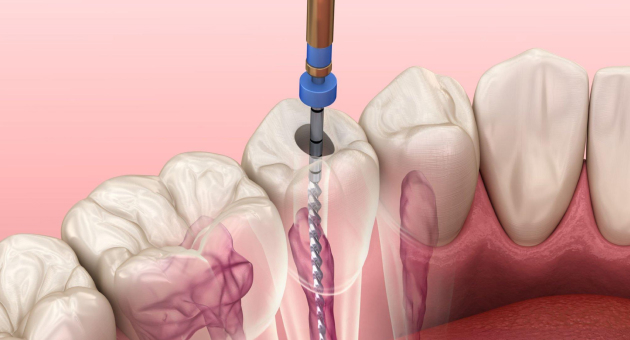7 Signs You Need Endodontic Surgery

Signs you need endodontic surgery
The Significance of Endodontic Surgery
“Many patients have endodontic surgery to remove discomfort as treatment clears any infection and repairs damage.”
Sensitivity and Pain
Having a professional dental cleaning can help remove leftover food and debris from hard-to-reach areas in the mouth. Any discomfort from this should go away after the cleaning. If pain persists, it could be a sign of tooth infection or decay that may need endodontic surgery.
While it's common to feel some sensitivity to hot or cold foods and drinks, ongoing pain could signal a more serious issue. Pain that lingers after eating or drinking might be due to weak enamel or an internal tooth infection, which may require endodontic surgery for treatment.
“Endodontic surgery may be necessary if root canal therapy fails to repair the tooth.”
Gentleness
Many people may experience tooth sensitivity, but if you are feeling excessive oral tenderness when touching a tooth or chewing food, it could be a sign that endodontic surgery is needed. Sharp pain while chewing may indicate a cracked or infected tooth, and in severe cases, endodontic surgery may be necessary to save the tooth.
If a tooth is painful to the touch, it is a sign of a potential issue that may require endodontic surgery. It is important not to ignore this pain, as it will only get worse without proper treatment to address the underlying endodontic problem.
“Although many people experience some degree of tooth sensitivity, excessive oral tenderness when touching a tooth or chewing food is a symptom that may suggest the need for endodontic surgery.”
Swelling, Draining, and Discoloration are present.
“Without treatment, the infected area can grow and threaten a patient’s oral health and necessitate endodontic surgery.”
Abscesses and Swellings
When bacteria infect the tooth pulp, it can lead to a dental abscess where a pus-filled pocket forms at the base of the tooth root. This can cause significant pain and will not resolve on its own. While some relief may come if the abscess ruptures, endodontic surgery is still necessary for proper treatment.
If a patient notices a small bump near a tooth, it may be a sign that endodontic surgery is needed. It is important for patients with this symptom to schedule a dental appointment promptly to address the infection and pus. In cases of severe tooth infection, endodontic surgery may be the best course of action.




